Good People,
People must stand up and demand Kagame,
Museveni and M23 to be sent to ICC Hague and be charged so peace, unity and
cooperation for mutual good of all is re-energized for the good of all and in
pursuite for happiness in the Great Lakes of East Africa.
War is dangerous and it destroys peoples
livelihood, not only for the survival of the Congo State or Africa, but also to
peace and unity needed to spur progressive development throughout Africa and the
world. War in Congo affects its regional good neighborliness as
well as the whole of Africa. War therefore suppresses development and promotes
poverty, killings, pain and sufferings. War also contributes to environmental
pollution that affects climatic conditions and destroys
nature.
Over the years, combatants supporting Kabila’s
Congo government include the armed forces of Angola, Zimbabwe, Namibia, and
Chad. On the opposing side they form alliances for Rwanda and Uganda.
Common denominator is the Corrupt Trading system of theft that are done
unscrupulously and why warfare is engineered to spreading out across borders to
fear and problems, so people have no time to focus and address problem that
hinder sustainable Business Trading. The competing interests of
Special Business Interest then find room to engage in exploiting the country’s
considerable mineral wealth.
Observation on the past conflict in Central
Africa:
Some Central African rulers (e.g. Mobutu until
1997) and some insurgents (Kabila in the 1970s and 1980s, Savimbi in Angola) are
warlords whose private armies are financed by the smuggling of diamonds and
other minerals. Currently, Ugandans export Congolese diamonds while Zimbabwe
barters military support of Kabila for a stake in the copper and cobalt industry
of Katanga (in the southeast, bordering Zambia and Angola).
Consolidating moves to
Address Present Problems:
US Secretary John Kerry and UN
Secretary-General Ban Ki-moon must work legal strategy that urgently
clarify its mission and conclusively, resolve the war to avoid its
escalating into the kind of disaster never witnessed in before and
keep off M23 from illegal and unconstitutional occupation of Congo
Land.
We are aware that, part of MONUSCO, is part of
the existing U.N. peacekeeping mission with 20,000 personnel that are spread
across the vast central African state, and the brigade is made up of contingents
from South Africa, Tanzania and Malawi.
On the streets of
Goma, Congo people demand for immediate answers to stop illegal occupation of
their land by M23 who are Tutsis of Kagame tribe and who Kagame use to
intimidate and terrorize Congo. They made Goma their trading hub on
Lake Kivu, where Rwanda and Uganda enjoy the illegal business of stealing from
Congo resources, and therefore, many people are angry that the existing UN
mission are not doing enough to drive out M23 from illegal occupation of Congo
Land and protect them from the insurgency of M23 invasions and terrorism from
the Organized Militia groups that prey on civilians, raping, looting and killing
people.
NGOs have written
reports and Rights groups point to a number of massacres and abuses of civilians
in eastern Congo over the last decade even though armed U.N. peacekeepers were
in nearby bases. When well-armed fighters from a Militia Group known as M23
swept into Goma past U.N. troops, there was no resistance to stop them. M23
eventually temporarily withdrew under international pressure, but re-grouped for
new attacks on Congo.
According the United
Nations High Commissioner for Human Rights, Navy Pillay, "The leaders of the M23
figure among the worst perpetrators of human rights violations in the DR Congo;
many of them have track records including allegations of involvement in mass
rape, and are responsible for massacres with the recruitment and use of children
labor at war.”
The international
community must take a conclusive action against Rwanda and, to save Congo from
more killings, Land Grabbing, plundering of Congo’s Natural Resources, Peace
must prevail in the region, those who stole their wealth must return what they
stole; and that peace and unity be restored in Congo for the Congo people to
begin to engage with its neighbors in cooperating over Mutual partnership that
benefit all for the good of all and without expounding the
problem.
Business of Land
Grabbing, hooliganism, theft and terrorism through politics of corruption and
impunity; the reason why Congo is suffering, must be put to a stopped. Law and
Order must be instituted for sustainable business to take effect. Those who
engage in this type of business have run out of ideas and it is time they must
begin to rethink how things can be done in a more sober
manner.
Judy Miriga
Diaspora Spokesperson &
Executive Director for
Confederation Council Foundation for Africa
USA
email: jbatec@yahoo.com
Congo conflict spills over into Rwanda
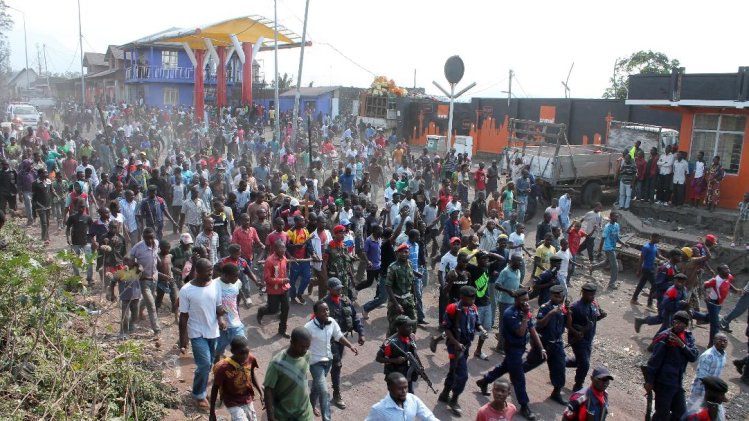
.
View gallery
-
 .
. -
 .
.
KINSHASA, Congo (AP) — Fighting from the war in eastern Congo that pits U.N.
and Congolese forces against rebels spilled over into Rwanda on Thursday when 10
shells landed in a Rwandan border town and a nearby village, killing at least
one person, authorities said.
Rwanda, which the U.N. accuses of backing the rebels in the neighboring nation of Congo, blamed the Congolese military for the shelling of its territory, saying it was done with the intention of dragging them into the conflict.
Rwandan Foreign Minister Louise Mushikiwabo said a projectile fired by Congolese forces at 9:45 a.m. killed a woman and seriously injured her 2-month old baby in a market in Rubavu town, located 3 kilometers (2 miles) from the Congolese border.
"We have remained restrained for as long as we can but this provocation can no longer be tolerated. We have the capacity to determine who fired at us and will not hesitate to defend our territory. Rwanda has a responsibility to protect its population," Mushikiwabo said. She said a second projectile landed at 11:20 a.m. in Rubavu, injuring one person, and that eight landed at nearby Busasamana village 10 minutes later.
Goma, a city of 1 million located on the Rwandan border, briefly fell to the M23 rebels last year, whose ranks are swollen with undercover Rwandan soldiers, according to repeated reports by the United Nations Group of Experts. The soldiers from Rwanda join the M23 in small groups, hiking across footpaths into Congo. Rwanda has also supplied them with arms and sophisticated equipment, including night vision goggles, the report said.
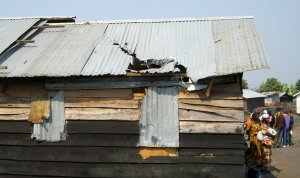
Meanwhile, combat continued in eastern Congo on Thursday, and Congolese
Minister of Information Lambert Mende confirmed that two shells had landed in
two separate neighborhoods in the provincial capital of Goma overnight, killing
one person and wounding eight.
That brings to 13 the number of people killed in Goma by shelling from rebel positions north of the city in just over a week, ever since the Congolese army backed by United Nations troops went on the offensive against the M23 rebels.
Paluku Kavunga, a resident of Goma, said he had seen the latest victim of the shelling: "I saw the body torn into pieces of a boy who was 16 years old and who was killed last night," he said. "This morning I heard another two detonations not far from Goma and I also saw four helicopters from the United Nations who were flying over the city of Goma."
The fighting in recent days has been among the most intense in the past year, and comes after the United Nations Security Council in March authorized the creation of a special intervention brigade which, unlike the other 17,000 peacekeepers stationed in this vast nation, have a mandate allowing them to go on the offensive against the M23 rebel group. The brigade, made up of soldiers from Tanzania and South Africa, was created in the wake of the criticism following the fall of Goma to the rebels last year.
Reached by telephone, M23 President Bertrand Bisimwa said that the fighting had lasted until 11 p.m. on Wednesday, and resumed at 4 a.m. Thursday. He said the U.N. troops are mixed in with the Congolese soldiers.
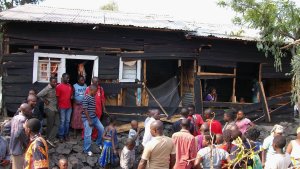
"The Congolese and the U.N. attacked us with their infantry, with their
combat tanks and with their heavy weapons," he said. "They are mixed in
together. On the front line you can see them together. We especially see the
U.N. soldiers in the tanks."
Pikkie Greeff, the national secretary of the South African National Defense Union, a military union which represents some of the soldiers fighting in Congo, said that South African Special Forces snipers have been "taking out" rebels manning machine gun posts, barriers and other positions. He also said the South African and Tanzanian troops are launching attacks from the air and hitting the rebels with artillery shells. As the fight intensifies "the possibilities of casualties are very high ... and we see the possibility that soldiers might die in combat," he said.
Congo, a nation the size of Western Europe, has been in a perpetual state of crisis for almost two decades. Even before the creation of the M23 in 2012, its forest-covered hills were crawling with other rebel groups, ethnic militias and renegade units of the regular army. The latest flare-up is causing people to flee from the very refugee camps that became their temporary homes in previous conflicts.
"Things are really bad when people are being forced to run away from displacement camps," said Frances Charles, the Goma-based advocacy director for international aid group World Vision, who was reached by telephone. "The DRC (Democratic Republic of Congo) level of emergency is so much worse than anywhere else. What we now take as 'normal' would be considered a catastrophe anywhere else. For us a good day is, for another country, the biggest catastrophe they have ever seen."
___
Jason Straziuso contributed from Nairobi, Kenya. Associated Press writers Rukmini Callimachi in Dakar, Senegal, Rodney Muhumuza in Johannesburg and Peter J. Spielmann in New York also contributed to this report.
Rwanda, which the U.N. accuses of backing the rebels in the neighboring nation of Congo, blamed the Congolese military for the shelling of its territory, saying it was done with the intention of dragging them into the conflict.
Rwandan Foreign Minister Louise Mushikiwabo said a projectile fired by Congolese forces at 9:45 a.m. killed a woman and seriously injured her 2-month old baby in a market in Rubavu town, located 3 kilometers (2 miles) from the Congolese border.
"We have remained restrained for as long as we can but this provocation can no longer be tolerated. We have the capacity to determine who fired at us and will not hesitate to defend our territory. Rwanda has a responsibility to protect its population," Mushikiwabo said. She said a second projectile landed at 11:20 a.m. in Rubavu, injuring one person, and that eight landed at nearby Busasamana village 10 minutes later.
Goma, a city of 1 million located on the Rwandan border, briefly fell to the M23 rebels last year, whose ranks are swollen with undercover Rwandan soldiers, according to repeated reports by the United Nations Group of Experts. The soldiers from Rwanda join the M23 in small groups, hiking across footpaths into Congo. Rwanda has also supplied them with arms and sophisticated equipment, including night vision goggles, the report said.
View gallery."

People walk past a house damaged by overnight shelling
in Goma, eastern Congo, Thursday, Aug. 29, 20 …
That brings to 13 the number of people killed in Goma by shelling from rebel positions north of the city in just over a week, ever since the Congolese army backed by United Nations troops went on the offensive against the M23 rebels.
Paluku Kavunga, a resident of Goma, said he had seen the latest victim of the shelling: "I saw the body torn into pieces of a boy who was 16 years old and who was killed last night," he said. "This morning I heard another two detonations not far from Goma and I also saw four helicopters from the United Nations who were flying over the city of Goma."
The fighting in recent days has been among the most intense in the past year, and comes after the United Nations Security Council in March authorized the creation of a special intervention brigade which, unlike the other 17,000 peacekeepers stationed in this vast nation, have a mandate allowing them to go on the offensive against the M23 rebel group. The brigade, made up of soldiers from Tanzania and South Africa, was created in the wake of the criticism following the fall of Goma to the rebels last year.
Reached by telephone, M23 President Bertrand Bisimwa said that the fighting had lasted until 11 p.m. on Wednesday, and resumed at 4 a.m. Thursday. He said the U.N. troops are mixed in with the Congolese soldiers.
View gallery."

Onlookers gather around a house damaged by overnight
shelling in Goma, eastern Congo, Thursday, Aug. …
Pikkie Greeff, the national secretary of the South African National Defense Union, a military union which represents some of the soldiers fighting in Congo, said that South African Special Forces snipers have been "taking out" rebels manning machine gun posts, barriers and other positions. He also said the South African and Tanzanian troops are launching attacks from the air and hitting the rebels with artillery shells. As the fight intensifies "the possibilities of casualties are very high ... and we see the possibility that soldiers might die in combat," he said.
Congo, a nation the size of Western Europe, has been in a perpetual state of crisis for almost two decades. Even before the creation of the M23 in 2012, its forest-covered hills were crawling with other rebel groups, ethnic militias and renegade units of the regular army. The latest flare-up is causing people to flee from the very refugee camps that became their temporary homes in previous conflicts.
"Things are really bad when people are being forced to run away from displacement camps," said Frances Charles, the Goma-based advocacy director for international aid group World Vision, who was reached by telephone. "The DRC (Democratic Republic of Congo) level of emergency is so much worse than anywhere else. What we now take as 'normal' would be considered a catastrophe anywhere else. For us a good day is, for another country, the biggest catastrophe they have ever seen."
___
Jason Straziuso contributed from Nairobi, Kenya. Associated Press writers Rukmini Callimachi in Dakar, Senegal, Rodney Muhumuza in Johannesburg and Peter J. Spielmann in New York also contributed to this report.



Wednesday, August 28, 2013
EAC leaders commission Berth 19 at Mombasa Port

President Kenyatta receives Rwanda President Paul Kagame when the latter
arrived at the Kenya Ports Authority, Mombasa for the commissioning of Berth 19
August 28, 2013. PSCU
In Summary
Berth 19
President Kenyatta has led regional leaders in commissioning berth 19 at the
Mombasa Port.
The President said the government was determined to ensure port operations
run smoothly.
"We are looking for efficiency in order to reduce trade barriers and to
improve opportunities for our country," said President Kenyatta
Wednesday.
"This port is critical to our region's development and commissioning of Berth
19 represents the pragmatic aspects of my government's commitment. It is my
Government's manifest intention to turn the Port of Mombasa into the largest,
busiest and most business-friendly sea-port on the East African coast," he
said.
He said the Port that is the gateway to the region demands higher standards
of integrity, efficiency, discipline and accountability to consolidate its role
in the transport logistics chain of road and rail systems.
"We have no option. This is the call of our time. We are the custodians of
the Gateway to East Africa. Our regional brothers and sisters depend on us to
ensure that they never fall in want or suffer unnecessary inconvenience owing to
inefficiency or corruption at this Port,” President Kenyatta said.
UPGRADE ROAD AND RAIL LINKS
He said that the government was determined to upgrade road and rail links
with neighbouring countries, starting with the building of a standard gauge
railway from Mombasa to Malaba in order to increase rail freight from the
current four per cent to at least 50pc in the next few years.

President Kenyatta receives Uganda President Yoweri Museveni when the latter
arrived at the Kenya Ports Authority, Mombasa for the commissioning of Berth 19
August 28, 2013. PSCU
The colourful event was attended by Uganda President Yoweri Museveni and Paul
Kagame (Rwanda).
President Museveni, who is the chairman of the East African Community, said
the Port was critical in assisting producers of goods and services in the region
to access local and international markets.
He challenged regional states to unite in a bid to create a bigger market for
regional products and services as well as consolidate their bargaining power
with major global economies and trading blocs.
He praised President Kenyatta’s efforts to remove non-tariff barriers such as
roadblocks and corruption resulting in faster movement of goods, people and
services between Kenya and Uganda.
President Kagame said improvements at the Port would foster trade and
investment in the East African region.
The 240-metre long new berth is expected to boost container handling
operations and increase capacity at the Port.
The commissioning of the berth was part of activities of a two-day
infrastructure conference in Mombasa.
The Summit is a follow-up of the 1st Conference held in Uganda in June, 2013
and aims at taming spiralling business costs and concerns over huge projects
lagging behind schedule.
Related Stories
Image Gallery
 From
left: Presidents Yoweri Museveni of Uganda, Uhuru Kenyatta of Kenya and Paul
Kagame of Rwanda pose for a photo during the commissioning of Berth 19 at the
Port of Mombasa. Photo/Laban Walloga.
From
left: Presidents Yoweri Museveni of Uganda, Uhuru Kenyatta of Kenya and Paul
Kagame of Rwanda pose for a photo during the commissioning of Berth 19 at the
Port of Mombasa. Photo/Laban Walloga.
 President
Uhuru Kenyatta will on Wednesday officially open the 2nd Infrastructure Summit
of Heads of State and Government at Whitesands Hotel in Mombasa.
President
Uhuru Kenyatta will on Wednesday officially open the 2nd Infrastructure Summit
of Heads of State and Government at Whitesands Hotel in Mombasa.
28/8/2013
14 comments
25 shares
views
 From
left: Presidents Yoweri Museveni of Uganda, Uhuru Kenyatta of Kenya and Paul
Kagame of Rwanda pose for a photo during the commissioning of Berth 19 at the
Port of Mombasa. Photo/Laban Walloga.
From
left: Presidents Yoweri Museveni of Uganda, Uhuru Kenyatta of Kenya and Paul
Kagame of Rwanda pose for a photo during the commissioning of Berth 19 at the
Port of Mombasa. Photo/Laban Walloga.
2 days ago
Uhuru to open infrastructure summit in Mombasa
 President
Uhuru Kenyatta will on Wednesday officially open the 2nd Infrastructure Summit
of Heads of State and Government at Whitesands Hotel in Mombasa.
President
Uhuru Kenyatta will on Wednesday officially open the 2nd Infrastructure Summit
of Heads of State and Government at Whitesands Hotel in Mombasa.
Wednesday, August 28, 2013
Joy for Mombasa as new-look port opens

(3L-R): Presidents Museveni, Paul Kagame and Uhuru Kenyatta flanked by other
officials during the commissioning of Berth No 19 at Mombasa Port yesterday. PPU
PHOTO
In Summary
- The port currently has a capacity to handle 250,000 20-foot containers a year. The new berth, the deepest and widest yet, will increase this by 200,000 to 450,000 a year — just a half of regional demand of 900,000 containers.
- The government is committed to the Lamu Port-South Sudan Ethiopia Transport Corridor (Lapsset), which will accelerate social and economic development of the region.
- On the Lapsset corridor, he assured the governments of Ethiopia and South Sudan that his government was committed to the project that would accelerate social and economic development of the region.
The port of Mombasa has consolidated its position as the region’s largest
with the opening of a new berth for ships.
The commissioning of berth number 19 in a ceremony attended by three East
African presidents will see Mombasa nearly double its cargo handling
capacity.
“Receiving, processing and transporting cargo to customers in a timely
fashion is a critical indicator of the port’s productivity,” President Kenyatta
said in the company of his colleagues Yoweri Museveni of Uganda and Paul Kagame
of Rwanda. Tanzania’s Jakaya Kikwete and Pierre Nkurunziza of Burundi did not
attend. The two also skipped a June summit in Entebbe. South Sudan, which did
not attend the earlier meeting, was represented by a minister
Wednesday.
The port currently has a capacity to handle 250,000 20-foot containers a
year. The new berth, the deepest and widest yet, will increase this by 200,000
to 450,000 a year — just a half of regional demand of 900,000
containers.
“Obviously, we still have some way to go,” President Kenyatta said.
The new $66.7 million (Sh6bn) berth is 240 metres long and is the deepest on
the East African seaboard.
The Head of State called upon the Kenya Ports Authority management to ensure
an efficient and effective management that satisfies the needs of the fast
changing and increasing clientele.
Non-tariff barriers
Non-tariff barriers
“We have no option. This is the call of our time. We are the custodians of
the Gateway to East Africa. Our regional brothers and sisters depend on us to
ensure that they never fall in want or suffer unnecessary inconvenience owing to
inefficiency or corruption at this port,” he said.
Presidents Museveni and Kagame welcomed the improvements at Mombasa, which
handles most of the import and export trade for the two landlocked countries.
President Kagame thanked President Kenyatta’s government for “hitting the
ground running” by working to improve infrastructure and reducing non-tariff
barriers on trade in the region.
President Kenyatta said his government was determined to upgrade road and
rail links with neighbouring countries, starting with the building of a standard
gauge railway from Mombasa to Malaba.
This will increase rail freight from the current four per cent to at least 50
per cent in the next few years.
“This port is critical to our region’s development and commissioning of Berth
19 represents the pragmatic aspects of my government’s commitment,” the
President said.
The government is committed to the Lamu Port-South Sudan Ethiopia Transport
Corridor (Lapsset), which will accelerate social and economic development of the
region.
A second container terminal is also being developed, accompanied by a bypass,
to relieve the Likoni Channel of traffic and ease movement of goods between
Kenya and Tanzania.
GENERATE EMPLOYMENT
The bypass, he added, will traverse Dongo Kundu, where a Special Economic
Zone is proposed, to attract business to the Port and generate employment
locally.
The President said apart from infrastructure development, his government will
hasten removal of barriers that increase the cost of business.
The Head of State added that Information Technology at the Port of Mombasa
and along the Northern Corridor is being upgraded to provide seamless,
user-friendly interfaces between government authorities and other stakeholders.
He noted that dividends of an increasingly peaceful and stable Somalia had
significantly reduced piracy in the Indian Ocean resulting in international
business communities’ confidence to trade with the region.
On the Lapsset corridor, he assured the governments of Ethiopia and South
Sudan that his government was committed to the project that would accelerate
social and economic development of the region.
“My government undertook to deepen Kenya’s economic ties with our neighbours
in South Sudan, Sudan, Ethiopia and Somalia by taking deliberate steps to
eliminate tariff and non-tariff barriers while encouraging greater collaboration
of our regional partners,” he said.
In his speech flavoured with bouquets and barbs, Mr Museveni criticised
African countries for lacking the sense of business and wealth, thus
impoverishing a continent with superpower potential.
He challenged farmers and industrialists to take advantage of the expanded
port to produce more and exploit the regional market.
With a larger East African joint market, President Museveni added, the region
would have the clout to dictate terms to foreign investors to open up their
manufacturing firms locally.
According to him, Japan sells millions of vehicles to the region but none of
the countries have an assembly factory whereas in China, the same country
(Japan) has more than 20 assembly factories.
CREATE BIGGER MARKET
President Museveni, the current chairman of the East African Community,
challenged regional states to unite in a bid to create a bigger market for
products and services as well as consolidate their bargaining power with major
global economies and trading blocs.
President Kagame said the commissioning of the new berth will serve the
people of Rwanda “who do business here through exportation and importation of
goods.”
UN says Rwanda troops help DR Congo rebels: envoys
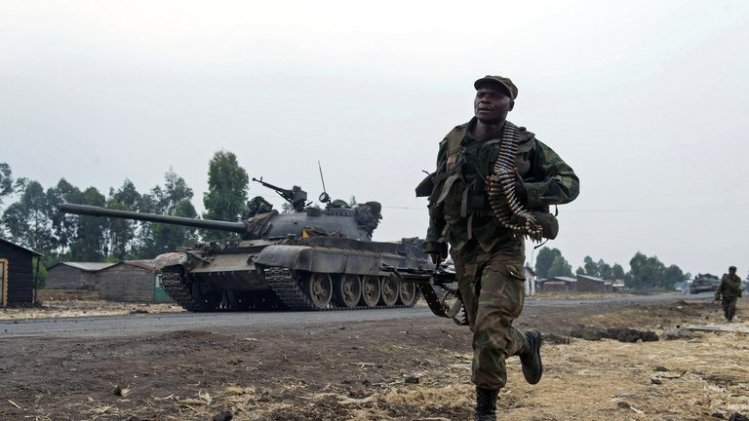
Rwanda has repeatedly denied charges that it backs the M23 rebels, who occupied the city of Goma in eastern DR Congo for 10 days last November.
But as fresh fighting flared in the resource-rich region, assistant UN secretary general Edmond Mulet told the Security Council that Rwandan soldiers had assisted the fighters, according to diplomats.
On Thursday, government forces backed by UN troops shelled rebels near Goma.
Artillery fire could be heard around Kibati north of Goma, the capital of the turbulent North Kivu province, where the DR Congo army and a newly-formed UN intervention brigade have been battling M23 rebels for a week.
The UN brigade has been given the first ever mandate by the UN Security Council to launch offensive peacekeeping operations against armed groups.
As tensions ran high along the border, a Rwandan woman was killed and her baby injured in what Kigali alleged was "deliberate" cross-border shelling by the DR Congo army, the FARDC.
Mulet, however, said UN forces had witnessed M23 rebels firing artillery from into neighbouring Rwanda, according to the diplomats.
"MONUSCO has not witnessed any shelling by the FARDC into Rwanda. These are areas where FARDC are not present," Mulet was quoted as saying.
UN leader Ban Ki-moon had telephoned Rwanda's President Paul Kagame to urge "restraint" over the mounting tensions in eastern DR Congo, Mulet told the closed Security Council meeting, according to diplomats.
His briefing is set to ignite new controversy over external backing for the rebels who have been battling the DR Congo government around the key eastern city of Goma for the past 18 months.
A UN soldier from Tanzania was killed in the fighting on Wednesday, and three South African soldiers have been hurt in the clashes.
The M23 rebels have emerged as one of the most formidable forces operating in the DR Congo's east. They accuse the Kinshasa government of reneging on a 2009 peace pact and a deal to hold direct talks, and have threatened to attack Goma again.
Rwanda -- a temporary Security Council member -- has blocked a bid to impose UN sanctions on two M23 leaders as well as a council press statement condemning the death of the Tanzanian peacekeeper, diplomats said.
Rwandan Foreign Minister Louise Mushikiwabo issued a furious statement condemning the DR Congo army, accused of firing on Rwanda and supporting Hutu rebels involved in the Rwandan genocide of 1994.
"We have remained restrained for as long as we can but this provocation can no longer be tolerated. We have the capacity to determine who fired at us and will not hesitate to defend our territory. Rwanda has a responsibility to protect its population," she said.
Western military sources who asked not to be named said that the latest clashes could be a prelude to a full-on assault by the army and UN troops. They have an unprecedented mandate to take the offensive against the armed movements long active in the mineral-rich but impoverished Kivu region.
The two eastern Kivu provinces, North and South, have been chronically unstable since two wars wracked the vast country between 1996 and 2003, drawing in armies from neighbouring and southern African countries, who fought in part over access to vast mineral wealth.
All flights to Goma, a city of a million people, have been suspended since the outlying airport is vulnerable, said a source in MONUSCO, the UN mission in the country.
The UN intervention force is using attack helicopters and mortars in the Kibati hills, while firing on other rebel positions with heavy artillery, according to MONUSCO spokesman Madnodje Mounoubai.
UN-deployed South African snipers have also reported killing six M23 rebels.
Four shells fell early Wednesday night on Goma, two of them striking the area where the airport lies east of the city, but nobody could say who fired them. Residents said shellfire killed one person and wounded about 15 others in the north of the city.
-----------------------------
Thursday, August 29, 2013
Burundi and South Sudan join new EAC partnership

Tanzanian President Jakaya Kikwete. FILE | AFRICA REVIEW
In Summary
- Tanzania’s Jakaya Kikwete did not attend the summit. When contacted, his spokesman Salva Rweyemama told the Nation that the Tanzanian leader was not invited to the Mombasa meeting.
Three regional presidents Wednesday sanctioned ambitious plans to fast-track
East African political federation and complete key infrastructure
projects.
Presidents Uhuru Kenyatta (Kenya), Yoweri Museveni (Uganda) and Rwanda’s Paul
Kagame also approved the inclusion of Burundi and South Sudan in the new
multi-lateral partnership.
Ministers from the three countries will meet in Kampala next month and agree
on a roadmap by September 15, and prepare a zero draft of the federal
constitution by October 15, the leaders said in a joint communique.
The statement was issued after the three leaders held a closed-door meeting.
President Pierre Nkurunziza of Burundi and his South Sudan counterpart Salva
Kiir were represented by their ministers for Foreign Affairs, and Works and
Transport, respectively.
Tanzania’s Jakaya Kikwete did not attend the summit. When contacted, his
spokesman Salva Rweyemama told the Nation that the Tanzanian leader was not
invited to the Mombasa meeting.
“You now need to find out from the organisers why Tanzania was left out. We
were also not invited to a similar meeting in Uganda attended by the same
leaders.” Efforts to get a comment from the Presidential Strategic Communication
Unit were unsuccessful.
The three Presidents also said construction of the Mombasa-Nairobi segment of
the new standard-gauge railway line would start by November. The entire project—
to Kampala and Kigali— will be completed by March 2018.
Thursday, August 29, 2013

visaBy LUCAS BARASA
More by this Author
Thursday, August 29, 2013
Kenya, Uganda and Rwanda agree joint visa to promote tourism

Kenya, Uganda and Rwanda have agreed to have a joint tourist visa to attract
more visitors to the countries, Commerce and Tourism Principal Secretary Mohamed
Ibrahim said August 29, 2013. FILE
In Summary
- Commerce and Tourism PS Mohamed Ibrahim visa will facilitate and ease international arrivals to partner states.
- Dr Ibrahim: As an East Africa regional air travel hub, Kenya has embarked on an expansion process of its key airports.
- Kenya Utalii College principal Kenneth Ombongi has been elected the UNWTO Vice President of the Affiliate Members Board in charge of Africa region
More by this Author
Kenya, Uganda and Rwanda have agreed to have a joint tourist visa to attract
more visitors to the countries, a principal secretary has said.
Mohamed Ibrahim of Commerce and Tourism said the visa is to facilitate and
ease international arrivals to partner states.
“To promote regional tourism, the partner states further agreed to allow
their people to use national identity cards while crossing respective borders
and air travel within the states,” Dr Ibrahim said.
Addressing a World Tourism Organisation General Assembly in Zimbabwe, Dr
Ibrahim said in a speech made available to the Nation that national
borders should not be barriers to tourism growth.
Dr Ibrahim said as an East Africa regional air travel hub, Kenya has embarked
on an expansion process of its key airports.
“We believe our success in this effort will spur tourism growth in Kenya and
within the region,” Dr Ibrahim said.
DISRUPT TRAVEL
He regretted that a recent fire at Jomo Kenyatta International Airport
disrupted travel within the region but the situation has been
contained.
“We thank the international community for the support given to Kenya during
the affected period and particularly East Africa Community partner states for
availing their airports for use,” Dr Ibrahim said.
Dr Ibrahim said Kenyan infrastructure support facilities are being improved
to enhance road travel and that the country’s inbound and outbound road travel
has increased significantly.
“Cruise tourism has improved as a result of
regional concerted peace efforts in Somalia. We congratulate Somalia Government
for prioritizing tourism and urge United Nations World Tourism Organisation
(UNWTO) family to support Somalia tourism,” he said.
In anticipation of further growth in cruise
tourism, the PS said Kenya has prioritised expansion and modernization of its
ports and support facilities.
He urged UNWTO countries to prioritise
peace building efforts for tourism growth.
VICTORY AND HONOUR
Meanwhile, Kenya Utalii College principal
Kenneth Ombongi has been elected the UNWTO Vice President of the Affiliate
Members Board in charge of Africa region.
The election took place at the
Extraordinary Plenary Meeting of the Committee of Affiliate Members held at the
Elephant Hills Hotel, Victoria Falls town in Zimbabwe.
East Community, Commerce and Tourism
Cabinet Secretary Phyllis Kandie congratulated Dr Ombongi for his
appointment.
“I am delighted that a Kenyan has been
elected the Vice-President of UNWTO. It is a statement of how highly the
continent regards those who manage the tourism sector in Kenya. We heartily
congratulate Dr Ombongi for the victory and the honour bestowed to our country
through his election,” Ms Kandie said.
After his election, Dr Ombongi said: "This
election is a victory for my motherland, Kenya. It is, equally, a reward for the
Kenya Utalii College, the first hotel school in Africa, which has continually,
consistently and successfully trained personnel for the global hospitality and
tourism sector for over 46 years."
In his position, Dr Ombongi will be able to
lobby for more support for African institutions and organisations which are
affiliate members of the UNWTO.
The UNWTO has more than 400 affiliate members and 340 took part in the
election.
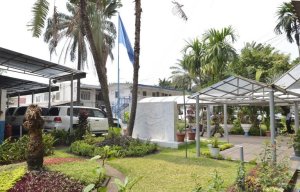
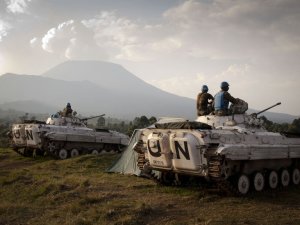
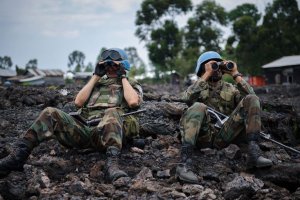
No comments:
Post a Comment